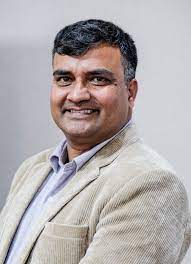Columns
Misguided desire for digital clampdown
The impact of the Internet shutdown, such as banning a messaging app, is immeasurable.
Ujjwal Acharya
On July 18, Nepal banned Telegram, a messaging app, citing its increasing use for criminal activity, especially online fraud and money laundering. This will put Nepal on AccessNow’s (a US-based organisation working on digital rights) list of countries imposing internet shutdowns in 2025. The organisation defines various internet shutdowns, including blanket and partial shutdowns. A partial shutdown, as per AccessNow, “target[s] specific types of networks (for example, mobile networks) or services such as social media and messaging apps”.
Last year, the world experienced 296 internet shutdowns across 54 countries. India, with 84 shutdowns, had the most internet interruptions in any democracy worldwide. Pakistan and Bangladesh also imposed multiple shutdowns, often coinciding with protests or politically charged events. Nepal also appeared on the list for banning TikTok. These measures made South Asia the most censored region in the world.
The internet empowers
The internet, a groundbreaking technological innovation, empowers the powerful and the ordinary. It is used in almost every sector, from agriculture to diplomacy, for nearly everything, from friendly chat to national development. The internet could enable an individual, a community, a government, or a country to achieve things that were not possible in the recent past.
Yet, South Asian countries are more focused on restricting citizens’ internet usage than harnessing the technology’s power to advance overall development. Those in power are more interested in consolidating their authority to remain in power than in empowering the public. The attempts to regulate the internet instead of facilitating its growth paint a bleak picture, indicating South Asia’s failure to utilise the technology to catch up with the first world—especially in areas that the region has long lagged behind in development.
Freedom of expression online
For an individual, the internet is a platform to access information and express opinions. Individuals can access information and express their views to a global audience at a negligible cost and without gatekeeping. While it is a celebrated aspect of the internet, it is also the biggest headache for rulers, as it disrupts their mediating power over mass communication. The mass media were always controlled, or at least their messages mediated, by the powerful. It is not a surprise then that the media have often drawn criticism for its identity of being the ‘voice of the voiceless’.
The onset of the internet provided individuals with a platform to exercise long-cherished yet never fully realised fundamental human rights—the rights to freedom of expression. The Universal Declaration of Human Rights 1948 enshrined this right in Article 19, but it was never possible, until the arrival of the internet.
All South Asian constitutions guarantee freedom of expression. Yet as citizens begin using the internet to exercise the right, governments respond with restrictions citing security, harmony or decency.
The impact of the internet shutdown on people is immeasurable. It not only silences a large part of society but also brings disruptions in their daily lives as they are increasingly dependent on the internet to access basic public services. The justification for internet shutdown is often attributed to ‘for security’ or ‘for protection of moral, social and religious sentiments’. However, such shutdowns do not have any visible effect on improving security, other than the state’s ability to deny citizens their rights to association, peaceful protest and speak.
The UN Human Rights Council has repeatedly affirmed that individuals have the same rights online as offline. Yet most South Asian nations have enacted harsh laws that criminalise online expression. India’s Information Technology Act, Pakistan’s Prevention of Electronic Crimes Act, Bangladesh’s Cyber Security Act and Nepal’s Electronic Transaction Act are all tools increasingly used to suppress criticism.
Where is privacy?
The right to privacy is also a constitutional guarantee across all South Asian states. But despite the growth in internet use, discussions around digital privacy remain scarce. Mass surveillance and biometric data collection without a proper mechanism of protection and accountability threaten privacy rights.
No one is certain how much the state agencies are conducting surveillance or accessing private data and metadata. In Nepal, telecommunications service providers and internet service providers are compelled to provide client information and metadata to the authorities without informing the client. This is spelled out in the licensing agreement. This is also true in India, Pakistan and Bangladesh where companies are required by license agreement to retain metadata and provide access to authorities. All of this happens without transparency or judicial procedure.
Phone wiretapping is evident, yet no concrete data is available, as there is no established, transparent process. The National Telecommunication Monitoring Centre of Bangladesh is the agency that ‘surveil the telephone and online communications as an intelligence activity’. Pakistan grants sweeping powers to the state authority to conduct surveillance on citizens. The broad powers for surveillance and metadata reduce citizens’ willingness to speak freely online under the fear of retaliation.
Pakistan, India and Nepal have an extensive citizenship registration in mandatory biometric identity cards. Bangladesh has a biometric SIM registration system. Citizens are compelled to provide their private information without proper legal protection for their data. Most South Asian states have weak privacy laws, as concerns about government overreach remain. The governments are a step ahead in formulating regulations to restrict freedom of expression online, but they are a couple of steps behind in formulating regulations to ensure the protection of citizens’ rights to privacy.
Zero regulation of the internet is not desirable, but restrictions on citizens’ rights, if necessary, should be explicit in terms and provided by law, pursue a legitimate aim and conform to absolute necessity. The limits should only be on the state’s sovereignty, public security and crimes. Defamation, hate speech, child pornography and individual privacy are also among the limits of speech, but the regulations in South Asia need to be amended to include the technological advancements in recent years.
Smart biometric cards are a sword. Identity cards are important for social security and the proper allocation of services. The cards also require a huge amount of centralised digitised data that needs proper infrastructural, technological and legal protection. The state should employ all means to protect the data and establish a transparent judicial procedure for the authorities to access data.
All such regulations should be people-centric rather than people-in-power-centric and aim to use the internet to empower the citizens, communities and state. Restrictive measures such as banning services or apps will never completely achieve success. The internet is powerful and with proper regulations and the state’s facilitation, South Asia could march ahead to catch up with any other nation in the world.




 8.4°C Kathmandu
8.4°C Kathmandu















